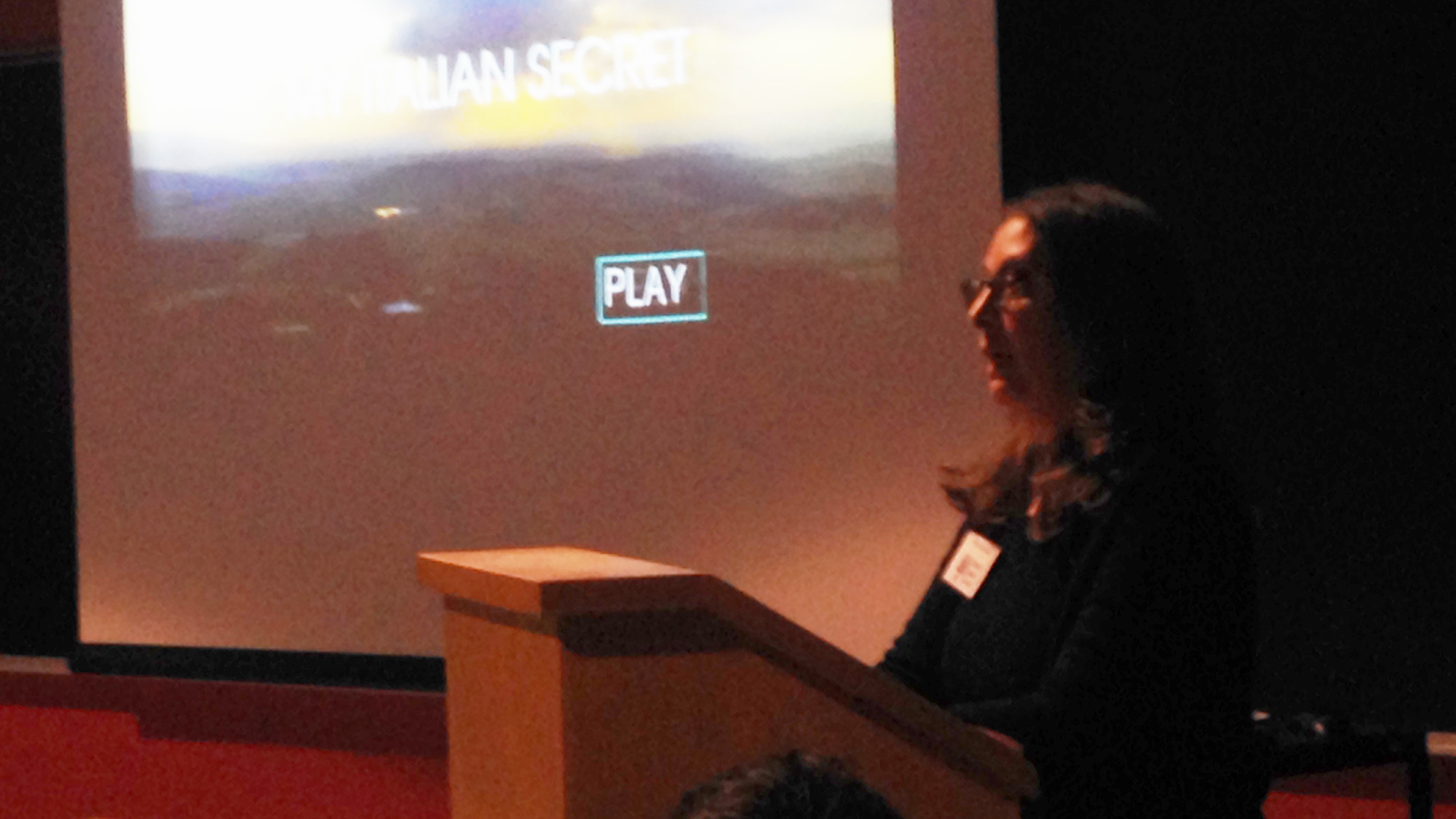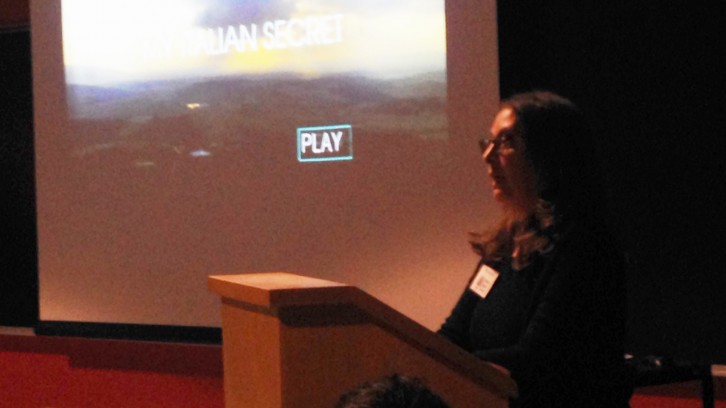Remembrance
Holocaust films ask us to evaluate our courage: commemoration organizers
Holocaust remembrance highlights acts of humanity — and asks audience how they would act

caption
Edna LeVine introduces documentary "My Italian Secret: The Forgotten Heroes"
caption
Edna LeVine introduces documentary “My Italian Secret: The Forgotten Heroes”A champion bicyclist smuggles forged identity papers in the frame of his bike. A doctor invents a disease to admit jews to a hospital while they secure passage onwards. A catholic nun asks a jewish child to kiss her finger instead of the crucifix, so that he remain true to his faith while hiding in an orphanage.
The scenes are from the 2014 documentary My Italian Secret: The Forgotten Heroes, which the Atlantic Jewish Council screened Sunday in commemoration of Holocaust Remembrance Day. It tells the lesser-known stories of Italians helped Jews escape the Nazi regime.
The organizer says an important part of Holocaust commemoration is prompting people today to consider the strength of their values.
“It’s a very pertinent story with everything that’s happening in the world, because it reflects on how people react and their values when they are challenged,” says Edna LeVine of the Atlantic Jewish Council.
Dorota Glowacka teaches Holocaust studies at the University of King’s College, and she agrees to the value these films can have.
“It’s an important part of history to learn about. We talk a lot about Germany, I teach about Poland, but we really need to have a more comprehensive view,” says Glowacka.
While fictional films like Schindler’s List have very little direct educational value, as they often favor emotion over facts, Glowacka says some good can still come of them.
“In terms of making people aware, films like that have value for me, because they generate discussion,” Glowacka says. “My students will have to access documents about it, things that you might not normally read. You need that kind of stimulus to become interested in the story and to show it has value.”
Fictional films about the Holocaust remain popular. This past weekend marked the Halifax release of Son of Saul, the story of a man put in the “Sonderkommando,” a group of Jews made to do the Nazis’ bidding in the concentration camps.
LeVine thinks it’s important these film keep being made. A film like My Italian Secret add new stories to what is a dark chapter in human history.
We thought that this would be an interesting story to tell,” says LeVine. ”If you were in Poland, you wouldn’t know what was happening in Italy, so these films are very educational.
As the Holocaust recedes further into the past, LeVine says these films grow in importance.
“We have to understand that a lot of survivors who used to speak are no longer speaking, because it’s too difficult or they passed away. This is part of our history, and these films provide that lasting legacy,” LeVine says.
Philip Riteman survived the Auschwitz and Dachau concentration camps to later move to Canada. He appreciates the value of films like My Italian Secrets.
“For young people, it’s OK to see it. For guys like me, it’s nothing I haven’t seen. Nothing can compare to what I saw,” Riteman says.
He has visited universities, schools and churches to tell of his experiences. As painful it may be to recount, Riteman believes in the virtue of Holocaust education.
“If you don’t learn, then history will repeat itself.”
About the author
Mikkel Frederiksen
Mikkel is finishing his Master of Journalism at the University of King's College. He's fond of watching films, and sometimes writes about them...
